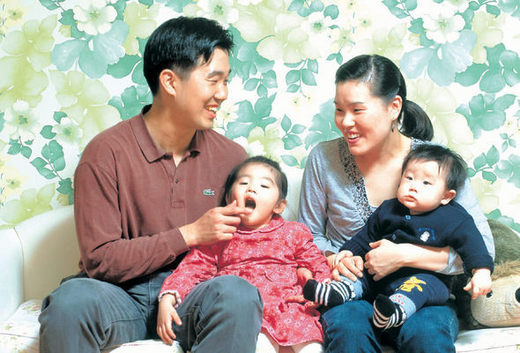 |
Male-female wage disparity named as factor
Lee Hye-ryeon, 32, who has been married three years, is really discontented with her husband. They are dual-paycheck couple, but Lee is responsible for all of the household duties. Lee is a so-called “superwoman,” undertaking both outside work and household affairs. In South Korea, even if both the wife and husband work together for a living, females spend nearly fivefold of time performing domestic duties compared to males, according to a survey. In a report titled, “Time Use of Two-Paycheck Couples,” Seong Ji-mi, an assistant professor of Korea University of Technology and Education, said that among those couples, wives spend an average of 21.4 hours a week on domestic chores, five times more than husbands’ 4.6 hours. This survey used 2004 data from the Korea Labor Institute’s ‘Korea Labor Panel,’ analyzing 859 two-paycheck couples’ cases. According to the report, after the couples have a baby, males conduct household duties for 5.1 hours a week and for 8.4 hours when their children are younger than two years old. For wives, the average time spent to take care of household chores increases to 23.2 hours when she has children. When the children are under two years old, women work 28.8 hours a week at home; when they are from two to six years old, women work 24.6 hours a week around the house. By employment status, salaried men spend 5.3 hours a week - the longest time - on domestic affairs, and employers and self-employed people spend 3.5 hours a week making the house a home.Prof. Seong noted, “In foreign countries, when they have working wives, the husbands share a considerable part of domestic affairs, but this isn’t the case in Korea. As women’s wages are lower than that of men’s, wives’ economic activities are recognized as secondary at home. As a consequence, the traditional way to share roles is still maintained.”





